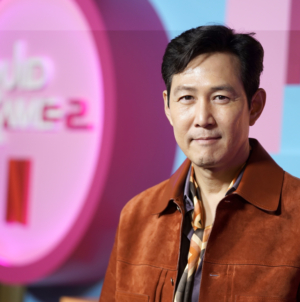-
How a Duct-Taped Banana Sold for $6.2 Million - 32 mins ago
-
Map Shows US States With Highest Levels Of Long COVID - 40 mins ago
-
Patriots Owner Robert Kraft Once Again Denied Induction into Hall of Fame - about 1 hour ago
-
The Alluring Dream That Black America Needs to Wake Up From - about 1 hour ago
-
Brooke Shields’ 2-Word Nickname for George H. W. Bush - 2 hours ago
-
The Secret Behind America’s Moral Panic - 2 hours ago
-
Ex-Congressman on Bondi Pick: Bag of Peanut Butter Is ‘Better Than Gaetz’ - 2 hours ago
-
Chuck Scarborough to Step Down as WNBC News Anchor After 50-Year Career - 3 hours ago
-
‘Wordle’ Today #1,252 Answer, Hints and Clues for Friday, November 22 - 3 hours ago
-
The UK Faces a Dilemma: Cozy Up to Trump or Reconnect With Europe? - 3 hours ago
Opinion | Will One Bad Debate Night Mean One Bad Election Day?
Bret Stephens: Gail, in our last conversation I asked you whether you would join me in calling for Democrats to find a new nominee if Joe Biden had a disastrous debate performance. You replied that it would have to be “super disastrous.”
Did the president’s performance on Thursday night meet your definition of “super disastrous”?
Gail Collins: Bret, I was thinking about you all through the debate. You were worried Biden would “lose it with some obvious memory lapse, slurred sentence or troubling blank stare.”
I pretty much dismissed your concerns, and I was, um, sorta wrong. But I did say I’d join you “if the president suddenly goes blank and stares at the screen in silence or forgets where he’s speaking.”
But hey, it wasn’t that bad. Quite.
Bret: It wasn’t?
Gail: OK, I’m coming around to your way of thinking. Biden shouldn’t be the nominee. Even if he makes a comeback from the he’s-way-too-old moments of the debate, we’ve got months before the election. And years before he’d be stepping down for good if he wins.
Bret: Which, I am 99 percent convinced, he can’t.
What America saw last week wasn’t a guy having a bad debate night. It’s the man Robert Hur, the special counsel in the Biden documents case, described this year as a “sympathetic, well-meaning, elderly man with a poor memory.” Hur is owed a public apology from every pompous pundit who dumped all over him for telling the truth. And Americans are owed better from the Democratic Party than a president tipping into senescence while his dishonest aides pretend that everything about the president’s health is hunky-dory.
So will it, or should it, be Kamala Harris, as our colleague Lydia Polgreen argued last week?
Gail: She certainly deserves a shot; Harris has done a good job as veep, and she’s overcome a lot of the political defects people found in her earlier. Possibly because she’s young enough to engineer a turnaround. Sigh.
Bret: I’ll leave our longstanding disagreements about Harris’s job performance to the side. I’m just reflecting on the thought that someone who will be 60 this year — the same age as Lyndon Johnson in the last full year of his presidency — now lies on the younger end of the political spectrum.
Gail: Yeah, there was a time when politicians in their late 50s didn’t count as juveniles. But about options for a post-Biden presidential nominee — I can’t imagine Harris’s selection being automatic. You’ve got some strong Democratic governors like Gavin Newsom of California and Gretchen Whitmer in Michigan who voters have the right to take a look at. Plus a bunch of good Democratic senators.
And personally, I wouldn’t mind seeing a run of intense competition as these folks vie for the nomination. Which I guess would wind up being decided at the convention in August, right?
Bret: I think so. If Biden were to release his delegates by announcing that he wasn’t running, those delegates would be the ones who would be making the decision. And five or six weeks of open competition would do the party, and the country, a lot of good while giving Biden a chance to focus on governance and be treated as a statesman for putting the interests of the country ahead of his own ambition.
Gail: Let’s pray the statesman doesn’t opt to keep running.
Bret: As for other candidates, I definitely see Whitmer, the governor of a must-win purple state, as a strong contender. Ditto for Pennsylvania’s Josh Shapiro, Maryland’s Wes Moore and Kentucky’s Andy Beshear. Newsom and other deep-blue-state governors, not so much. The key in this election will be an appeal to the political center, not the liberal and progressive base. I can also imagine Harris remaining in the veep slot or being replaced by someone who ensures racial or gender balance to the ticket.
Gail: Well, let’s see which liberals do a good job giving a moderate sales pitch.
Bret: Can we switch the subject to the Supreme Court? Lots of big decisions last week, including one upholding a city ban on public camping. Thoughts on that one or any of the others?
Gail: The public camping issue is a tricky one. Having lived through an era in New York when people were sleeping all over the parks and sidewalks, I don’t want it to make that easy. Particularly when so many folks are doing it while abusing alcohol or drugs.
Bret: Which is just what people in cities like San Francisco and Portland, Ore., are living through today.
Gail: But I couldn’t help but notice that the city that banned public camping does very, very little to provide shelter.
Can’t drive the homeless off when they don’t have any other decent option. Do you agree?
Bret: It’s a tough problem. One issue is that homeless people often refuse shelter even when it’s available to them — often because they don’t want to abide by the rules, like not being allowed to do drugs on the premises. Another issue is that government regulations make it unaffordable for cities to build affordable housing, as our colleague Ezra Klein explained in a column last year. But I have absolutely no problem giving local governments the power to clear out homeless encampments. Other city dwellers also have rights, including to public spaces that are safe and hygienic.
Gail: Sticking to the city offering options.
Bret: The other major court decision, Loper Bright Enterprises v. Raimondo, involves the end of what legal scholars call Chevron deference, a 40-year-old doctrine that held that courts should defer to federal agencies when it came to interpreting the laws the agencies had the task of carrying out, as long as their interpretations were “reasonable.” Assume you think this is a bad decision.
Gail: Well, you’re basically choosing between the government elected by the people and the Supreme Court. Who gets to make policy? The court, amazingly, is in favor of the court. I know we rely on the court to overrule politicians when they make deeply unconstitutional choices. But this is about who we want to see calling the shots on a regular basis.
Not happy passing over the people. How about you?
Bret: I have a certain amount of sympathy for the liberal dissenters in this case, because the ruling means that judges with very little expertise on any given issue will now have the task of interpreting laws that often require a lot of expertise. On the other hand, the doctrine of Chevron deference allowed Congress to pass ambiguously worded laws and unelected federal bureaucrats to interpret those laws to their liking with insufficient accountability. Maybe now Congress will write clearer laws and federal agencies won’t operate with such a free hand, often at the expense of small businesses that struggle under the weight of expensive regulations that were never enacted by elected legislators.
Gail: Hey, looks like one of us is more worried about government regulation than the other. What a surprise!
Bret: Another subject: Last week Representative Jamaal Bowman lost his Westchester primary to a moderate Democratic challenger. But in Colorado, Lauren Boebert romped to victory in her primary by switching districts. Any lessons to draw here?
Gail: Boebert is a political nut case, but she’s smart enough to know that the key to easy success is getting yourself in a district that won’t give you any trouble. Sort of the same saga we see when members of Congress start lobbying state legislators for a redistricted map that would give their party as many likely easy wins as possible.
As for Bowman — one good lesson from his defeat is that if you’re a congressman in a hurry to get to your seat for a vote, you shouldn’t pull the fire alarm for a fast entrance.
He was certainly hard to root for, but I wasn’t happy to see him lose to the Westchester County executive, which will basically shift more power to the keep-outta-my-suburbs voters.
Your thoughts?
Bret: Bowman richly deserved to lose his primary not only on account of his far-left views on the Middle East and his sophomoric pull-the-fire-alarm stunt in the Capitol but also for sheer political malpractice: If you’re going to represent a district with a lot of middle-of-the-road Jewish voters, maybe you should try to be more responsive to their concerns.
But the two races, Bowman’s and Boebert’s, also tell us something about the two parties they represent. Democratic primary voters just got rid of one of the more extreme voices in their party. Republican primary voters just delivered a blowout primary victory for their own extremist. Kinda sums up the state of our politics right now.
Gail: Bret, I have gotten used to your vote-for-Biden conservatism but still get really excited when you seem ready to divorce your whole party.
Bret: That divorce took place a while ago. In the meantime, I hope readers don’t miss Clay Risen’s obituary for Kinky Friedman, of Kinky Friedman and the Texas Jewboys, detective novelist, Texas Monthly columnist, thrice-failed political candidate and author of immortal songs that are mostly unquotable in a family newspaper. Among the obit’s piquant details:
In 1984, he was walking along a street, looking for cigars, when he saw a man assaulting a woman. He pulled them apart and waited for the police to arrive.
Later, he learned that the woman was Cathy Smith, who had been indicted in 1983 for injecting the comedian John Belushi with a lethal dose of heroin and cocaine.
“Out of 12 million people in the city, it had to be her,” he told Texas Monthly in 1993.
The word for that: priceless.





















